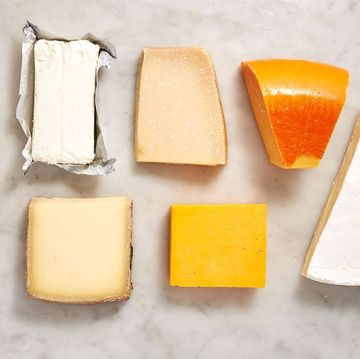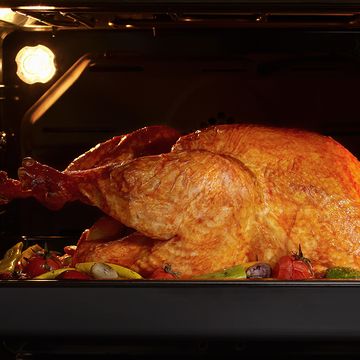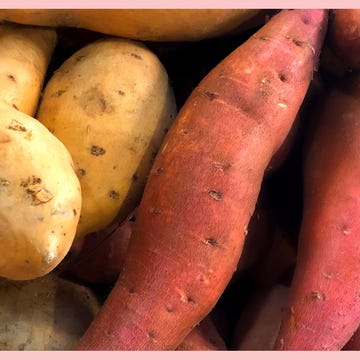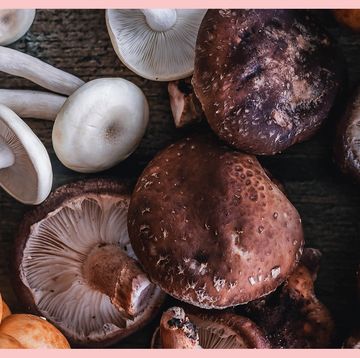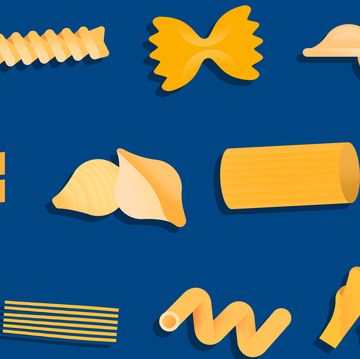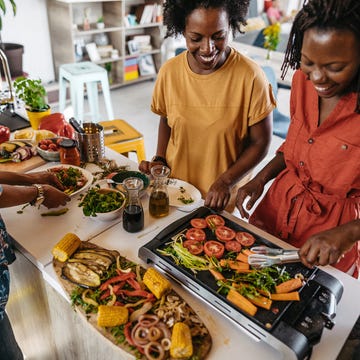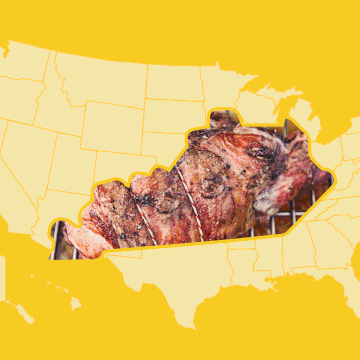Until the day when every single food item on our shopping lists can be delivered to our doorsteps without a hitch, supermarket shopping will still be one of our biggest chores. So whether you love to grocery shop or not, why not be smart about it? Here, we share a dozen expert ways to keep marketing in check and save so much money and time in the process.
Do routine pantry assessments
Before you even leave the house, make it a point to inventory what’s in your pantry each and every time you head to the grocery store. “This helps me save money and avoid wasting food,” says Jessica Fisher, a mom of six kids, cookbook author, and blogger at Good Cheap Eats. “I force myself to ‘use it or lose it,’ and this helps me figure out which ingredients (goodbye, lentils!) are not a hit with my family so that I can focus my spending on those that are.”
Sign up for rewards programs
This is one of the smartest ways you can save money, despite the fact that your shopping habits might be getting tracked—it’s no coincidence that you get coupons for items you routinely buy. That said, don’t toss those coupons as they can make a huge reduction in your food bills. “Using these coupons in the store or redeeming them online can end up stacking up your savings, especially when you’re buying multiples of an item,” says Julie Ramhold, a consumer analyst at DealNews, a shopping comparison website.
More From Delish
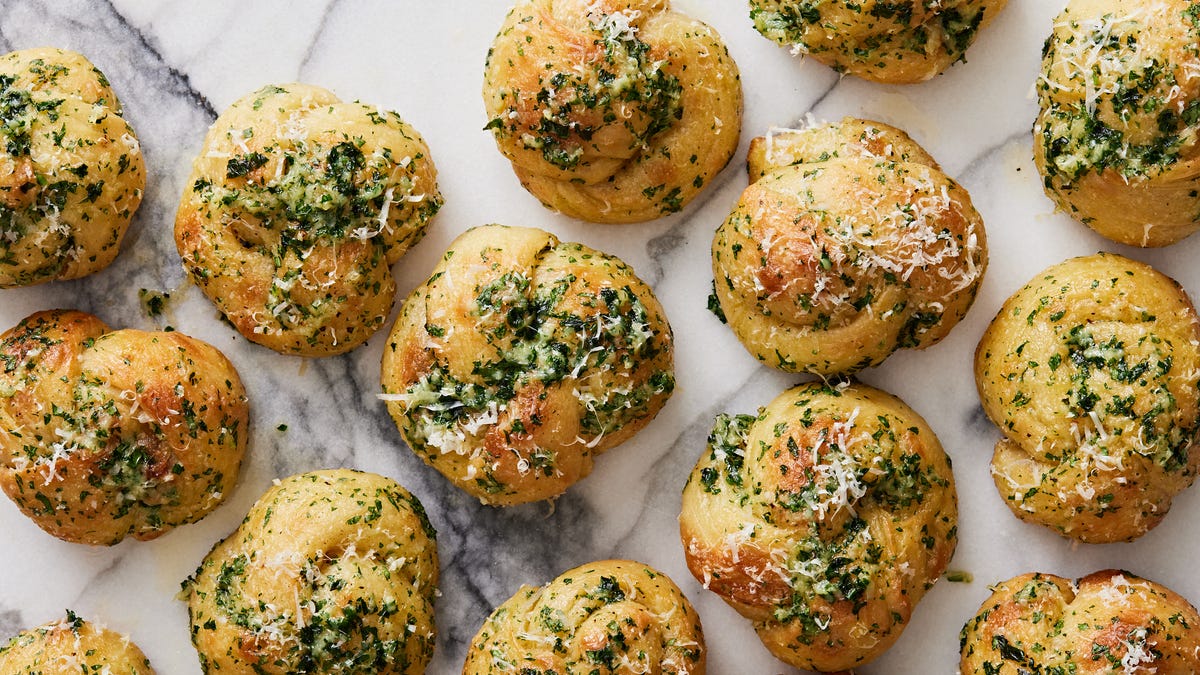
Socialize with your supermarket
Facebook is for more than looking at the shenanigans your BFF’s cat is up to on the regular. By following your favorite supermarket, you’ll get the inside scoop on what’s on sale and what’s trending. For example, there are over 50,000 members of the Aldi Facebook group AKA TheADLINerdsCommunity. “I just joined this group and am blown away by the size and popularity of the group,” says Jennifer Donahoe, a social media account director in Baltimore, MD. If you’re more of a Publix, Kroger, or Harris Teeter shopper, here are Facebook sites for you to consider checking out for even more store savings: Couponing at Publix, Couponing at Kroger and Couponing at Harris Teeter.
Scout savings trends
Oftentimes, big supermarket chains will put the same items on sale at the exact same time. This means that while you may be tempted to shop at, say, five stores in rotation, the cost in time and energy probably isn’t worth the return, says Mary Ann Kelley, a blogger at Add Salt and Serve. “I find that comparing prices at two stores will get me the best price on the most expensive items.”
Don't shop when you’re hungry
We’re pretty sure you’ve heard this before but you’re destined to blow your budget if your stomach is growling at the exact same moment you walk through the doors of your favorite supermarket. “Everything looks good when you’re hungry,” says Ramhold. “That means it can be easy to overspend without meaning to.”
Read the BOGO fine print
Before you shop buy one get one (BOGO) sales, be sure you’re in the know on what the store’s policy is on BOGOs, which are usually placed prominently in bins at the front of the store or in end ‘caps,’ which anchor the front or back of certain aisles. “For example, some stores specify that you can only put one BOGO pairing in your shopping cart,” Ramhold says. “Also, you’ll want to do the math as you’ll have to purchase the first item at the regular price in order to get the second one free.”
Be wary of warehouse deals
Interestingly, the prices you find at warehouse clubs may not offer as big a savings as those that you’ll find at your neighborhood supermarket. “Just because you’re buying in bulk doesn’t always mean that you’re getting the best price,” Ramhold says. “A 12-pack of bottled tea for $13.50 sounds like a good deal, but is your local Target offering the same item for 99 cents each as part of its weekly sale? The best deals might not be where you expect them to be.”
Consider the whole price tag
This means you should take a look at the cost breakdown of the items you’re purchasing. “To do this, check the weight or volume of your item and look at the ‘price per’ unit amount,” Ramhold says. “You could find yourself paying more overall but paying less per ounce, for instance.”
Stock up on regularly used items when they’re on sale
Rather than picking up impulse buys when you’re shopping, try to focus instead on limiting your purchases to sale items that you regularly use. “By doing this, I can usually buy three things on sale for the price of one at full price,” says Fisher. “I think of it as building a mini stockpile in my pantry to shop from. It saves me time and money not having to buy the same things every week.”
All hail bulk bin benefits
Instead of buying a jar of spices and paying for the cost of the glass as well, just buy the spice itself and refill your old jars at home. “Since spices are very light, you can usually get more than enough for around a dollar,” says Cadry Nelson, a vegan food writer and recipe creator at cadryskitchen.com. “Bulk bins are also a good place to pick up lentils, rice, flour, and other dried goods. You can get just the amount you need for a recipe, so you’re not storing these items for years.”
Consider the case
If you purchase foods by the case, most grocery stores will offer you a standard 10 percent discount. Just know that you may need to place the order at customer service. “If you don’t have room for a case of pasta sauce, for example, try the same strategy and pick up 12 of your favorite items on the shelf,” says Melissa Eboli, chef and owner of Via’s Kitchen, a catering company in New York City. “A discount is usually applied at checkout.”
Embrace (reasonable) shortcuts
If you’ve ever thrown out an entire cauliflower because you just didn’t have the time to chop it up, you might want to consider buying pre-cut vegetables provided you’re planning to cook them up pronto. “I’ve found that I go through cauliflower, broccoli, and Brussels sprouts much more quickly when I buy them already chopped,” Nelson says. “It’s so easy to throw a handful into a salad or stir-fry and somehow a full head of broccoli can be too much of a step when you’re hungry and tired.” After all, supermarket shopping can be very tiring—so cut yourself a break next time you’re pushing your massive cart from aisle to aisle and commit to making at least one thing easier on you.





